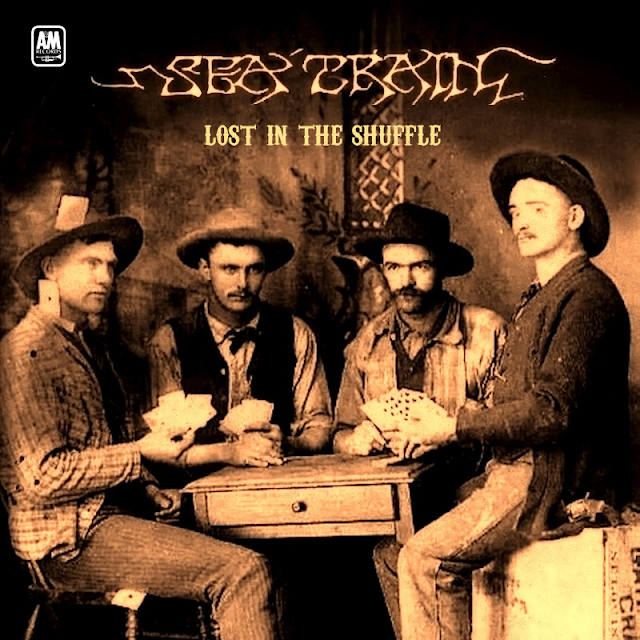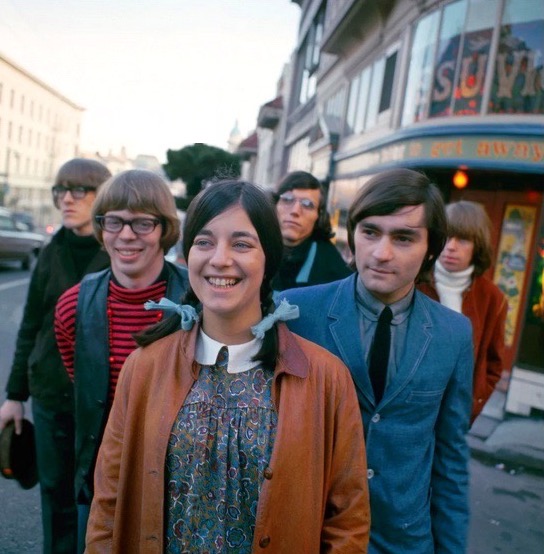Oboy. Wus I ever wrong about dese guys. I'd tossed these albums into a dump-bin hard drive along with - uh - well, stuff too embarrassing to talk about right now. But as I was rooting around in it yesterday or so, I decided to give them a last spin to confirm the correctness of my judgement, harsh tho' it be. And boy, was I ever wrong. They're swell! Fey as færie underpants, but this ain't The Dictators, so wit' th' sneering, enough awready. It takes a certain kind of courage to be this gentle, especially in Detroit, where Parrish made his album.
The Forest Of My Mind, from '68 because of course it is, boasts a gorgeous, spacious production from Motown's Clay McMurray and features Funk Brothers sessioners (including Bob Babbitt, whose playing graces the Douglas Hendrix albums). Imaginatively arranged by Dennis Coffey and Mike Theodore, it's a long way from funk, and a world away from Detroit. File under baroque psych-folk-pop. Parrish went on to a successful singer-songwriter career, but it's this first, glittering album that's truly special.
In '68, because of course it was, Bosstown's own Alan Lorber was busy producing Ultimate Spinach, Chamaeleon Church and a bunch of other first rate second tier psych acts, and had enough clout to bus in Grade A jazzbo sessioners for Bobby Callender's debut Rainbow, including Richard Davis, Bernard Purdie, Eric Gale and Hugh McCracken, and pioneer sitar-strangler Collin Walcott. What they thought was happening is anybody's guess, but it ain't jazz. This is sitar-sodden, effects-drenched psych-pop.
Callender's overt spirituality was not a psychsploitation move, as his utterly sincere and almost unlistenably mystic second album (included in the Freeload™) was to prove. The beady-eyed Lorber was keen to cash in on the hippie craze, but there's not an unmusical note on the album. If you love the first ten seconds you'll love it all. If not, play Go Girl Crazy! Nobody cares! What you like and think is not important here - this is the internet, where no mind is changed.
Both these albums have a distinctively English Whimsydelia™ vibe going for them, which leads lazy online reviewers to claim they're Donovan knockoffs, but neither sounds like him. They're just gently harmonious, tinged with melancholy, and built on beauty, a fine foundation. We've lost something special if we dismiss them as charmingly camp period pieces, a kind of smirking Hallmark© cosplay. They're as authentic in their way as John Lee Hooker.
Addendum post scriptum:
I've been listening to The Way (Callender's second album) and found the length of shrift I'd given it to be too short by a few nautical light years. A tad too much spoken word, but a quality music album (he's backed by Oregon), deserving more attention that it gets. Which is like, not much shading into none at all. Here's what to look for at your local gas station:
Encouraged by my open-mindeness, I dug out his third album, from '72, and I wus shocked, I tells ya! With a title like Le Musée de l'Impressionnisme, the cover, and a load of very short tracks with titles like Nadars (The Baptism Of Impressionism) you'd expect some delicately nervous, Eno-esque meditations on Art and Life and Shit, with washes of ill-advised New Age synthesiser. You'd be way off beam - as I was. This is SOUL MUSIC!!! FUNKIFIED FREAKING SOUL (FFS)!!! His voice has an edge to it - the guy can sing - the full big soul band is smokin' hot, the backing vox wail, the groove is propulsive, the hooks lift you out of your seat, and this is not only the biggest surprise a record's given me for lo these many years, it's MY RECORD OF THE YEAR. Ignoring the fact that it's from '72 (because of course it is). Who's counting?
Batshit bonkers. And astonishing, really.
(This post funded in part by the Jazzbo Funkateers For Free Love Society, Pork Hollow, CO)



.jpg)
















.gif)
























